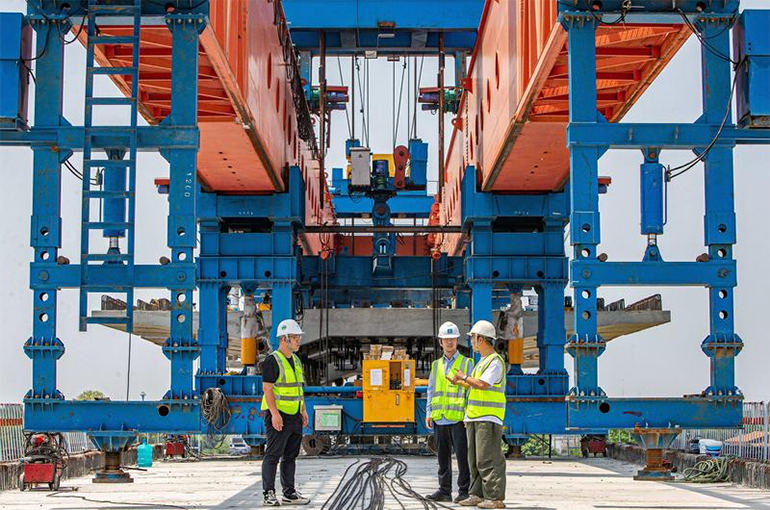 Thailand Approves Second Phase of High-Speed Railroad to China
Thailand Approves Second Phase of High-Speed Railroad to China(Yicai) Feb. 6 -- Thailand has reportedly given the green light for the second phase of a high-speed rail project connecting the Southeast Asian country with China through Laos.
The second phase of the China-Thailand high-speed railroad will be 357 kilometers long and have five stations, Thai government spokesperson Jirayu Houngsub said, Xinhua reported on Feb. 4. Construction is expected to be completed in 2030.
The China-Thailand Railway cooperation project was initiated in 2014 and faced several setbacks and delays. It was initially expected to be completed by 2020, but only 36 percent of the project has been constructed so far.
Since the China-Laos Railway was put into operation in December 2021, Thailand has placed great emphasis on the China-Thailand Railway. Last May, the country said it expects to complete the first phase of the project by 2028 and start the construction of the second phase this year.
Phase II will also include the construction of a logistics hub in Thailand's northeastern Nong Khai province, which will facilitate freight movement between Thailand's one-meter gauge railway and the 1.435-meter standard gauge used in the China-Laos Railway, offering a one-stop service for cargo transfer, Jirayu noted.
Once completed, the China-Thailand high-speed railway will form a corridor connecting China's Kunming, Laos' Vientiane, and Thailand's Bangkok all the way to Malaysia and Singapore. This will significantly enhance industrial collaboration, economic trade exchanges, and personnel movement between China and the Association of Southeast Asian Nations.
Laos has a population of just over seven million, while Thailand has more than 70 million people, as well as more convenient access to Malaysia and other Southeast Asian countries, Shi Benzhi, professor at the School of Economics of Yunnan University, told Yicai. If China successfully connects with Thailand, tourism and related industries will receive a great boost, Shi added.
Over 35 million foreign tourists visited Thailand last year, with their spending exceeding THB1.6 trillion (USD47.5 billion), according to data released by the Thai Ministry of Tourism and Sports on Jan. 1. Among them, Chinese tourists were the largest group, accounting for nearly 20 percent of the total.
Editor: Futura Costaglione